Index relies entirely on the support of donors and readers to do its work.
Help us keep amplifying censored voices today.

From top left: Arif Yunus, Rasul Jafarov, Leyla Yunus, Khadija Ismayilova, Intigam Aliyev and Anar Mammadli – some of the government critics jailed on trumped up charges in Azerbaijan
For the first time since the 2012 Eurovision Song Contest, the oil-rich, rights-poor nation of Azerbaijan is drawing widespread international attention. This June, the country is poised to host the inaugural European Games, which will bring an estimated 6,000 athletes from 50 countries to the capital city of Baku to compete in 20 sports.
Ahead of the games, the Azerbaijani regime has spent a great deal of time and money to promote a positive image abroad. At home, however, it is engaged in a brutal human rights crackdown. This has particularly intensified over the past year, as the authorities have worked aggressively to silence all forms of criticism and dissent.
Dozens of democracy activists are now in prison, including celebrated investigative journalist Khadija Ismayilova who was given this year’s PEN/Barbara Goldsmith Freedom to Write Award, and Leyla Yunus, one of the country’s most prominent human rights defenders. They, and many others, have been jailed on spurious charges, with some facing prison sentences of up to 12 years. Meanwhile, press freedom campaigner Emin Huseynov is trapped in the Swiss embassy in Baku, facing arrest if he leaves. These individuals have been targeted for their work defending the rights of others and telling the truth about the situation in their country.
So far, the European Olympic Committees has been happy to look the other way, stating that was “not the EOC’s place to challenge or pass judgment on the legal or political processes of a sovereign nation”. Likewise, the event sponsors do not seem bothered: BP stated that “seeking to influence the policies of sovereign governments” was not part of its role. The Sport for Rights campaign hopes, however, that the next prime minister will think twice.
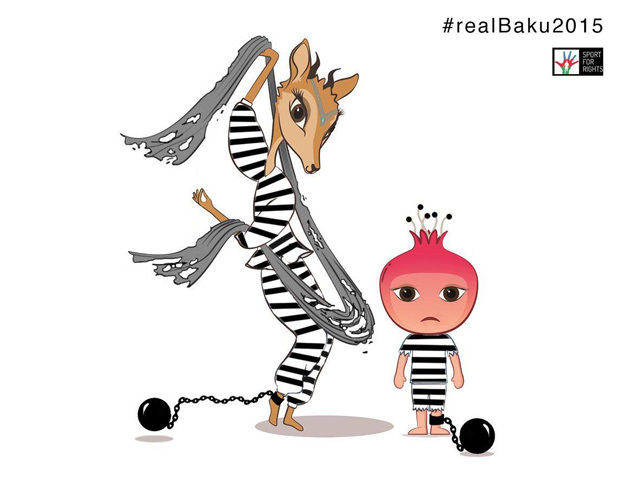
The Sport for Rights campaign’s take on Baku European Games mascots Jeyran and Nar. (Image: Sport for Rights)
As members of the campaign, Article 19, Index on Censorship, and Platform have written to the leaders of the UK’s Labour, Conservative, Liberal Democrat, and Green parties on the eve of the general election. The campaign urged them to make statements condemning the on-going attacks on human rights and calling for the release of political prisoners in Azerbaijan.
Sport for Rights also called on the party leaders to make their participation in the opening ceremony of the games contingent upon the release of the country’s jailed journalists and human rights defenders. This is not a call for a boycott of the games by athletes or the public, but a request for the next prime minister not to miss a key opportunity to take an important stand.
In the face of growing repression in Azerbaijan, the response from the British government has so far been weak and sporadic. Statements are occasionally made; the most recent expressed that the UK was “dismayed” by the sentencing of human rights lawyer Intigam Aliyev, but stopped short of calling for his release, as did the previous statement conveying that the UK was “deeply troubled” by the sentencing of human rights defender Rasul Jafarov. But beyond statements, little else has been done — at least in the public eye.
For a country so intent on promoting its image as a modern, glamorous, international player, key political figures taking a public stand on human rights issues would have a real chance of impacting positive, democratic change. The European Games presents a timely opportunity for the next prime minister to do just that, sending the clear signal that human rights are important in the bilateral relationship.
Conversely, attendance by the prime minister at the opening ceremony of the games in the current climate, without securing the release of the jailed journalists and human rights defenders, would only serve to effectively endorse an increasingly authoritarian regime. In helping to whitewash Azerbaijan’s ever-worsening image, the UK would only end up tarnishing its own.
This article was posted on 6 May 2015 at indexoncensorship.org
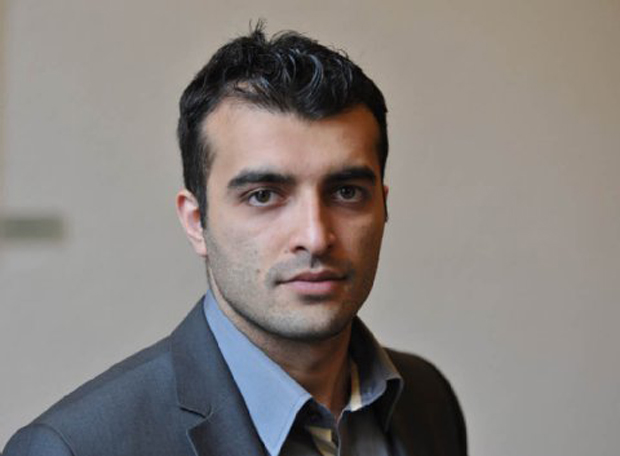
(Photo: National Endowment for Democracy)
The Sport for Rights coalition resolutely condemns yesterday’s sentencing of Rasul Jafarov, a prominent Azerbaijani human rights defender, to 6.5 years in prison on politically motivated charges. The coalition calls for his immediate release.
“This is just the latest example of the brutal crackdown on civil society by the host government of the forthcoming European Games,” said Thomas Hughes, Executive Director of Article 19. “This ridiculous sentence is a punishment for Jafarov’s human rights activism. The authoritarian regime in Baku are scared of the attention Jafarov would bring during the high profile sport events they are proudly hosting – the European Games in June this year and the Formula One Grand Prix in 2016”.
The coalition calls for the EU and its Member States to impose targeted sanctions – for instance visa ban– against those members of the regime who systematically abuse fundamental human rights of citizens of Azerbaijan. At the same time, given the unprecedented human rights crisis in Azerbaijan, the coalition calls for the European Olympic Committee to establish a working group to examine specific cases of right abuses that violates the spirit and letter of the Olympic Charter and the atmosphere of the first European Games.
“A robust response from the European Olympic Committee is required, together with sanctions from the European Union and United States. This is the only way to bring about the release of Rasul Jafarov and other political prisoners, including prominent human rights defenders Leyla Yunus, Emin Huseynov, Anar Mammadli, award-winning investigative journalist Khadija Ismayilova and well-known politician Ilgar Mammadov” , said Emma Hughes of Platform London.
“The Baku games should not be used as a means to blind the wider world to the appalling treatment being meted out to journalists and activists in Azerbaijan. The international community must unite in condemning the Azerbaijani government and in calling for the immediate release of Rasul Jafarov and his compatriots.”, Index on Censorship CEO Jodie Ginsberg said.
“The authorities of Azerbaijan has now come to an absolute low point of the regressive trend we have seen over the past years. An even lower point will be reached with the expected sentencing of human rights lawyer Intigam Aliyev next week. We expect governments, international organisations and corporate businesses that have relations with the Azerbaijani government to hold Azerbaijan accountable and react firmly. Profound actions and sanctions must be taken as a response to Azerbaijan’s severe crackdown on independent civil society and human rights defenders – and to Azerbaijan’s total disrespect of international agreements and responsibilities,” urges Maria Dahle, Executive Director of the Human Rights House Foundation (HRHF).
On 16 April 2015, Rasul Jafarov was sentenced to 6.5 years in prison by the Baku Court of Grave Crimes. He is also prohibited from holding any office for 3 years. He was convicted under Articles 192 (illegal business), 213 (tax evasion) and 308 (abuse of power) of the Criminal Code of Azerbaijan. During the trial, all the prosecution witnesses testified in his favor, and the prosecution failed to prove his guilt. After the verdict, Jafarov reiterated that the charges against him are politically motivated and fabricated.
Jafarov’s work has focused on violations of the right to freedoms of expression, assembly and association. At the time of his arrest in August 2014, he had collected information on over 100 cases of political prisoners in Azerbaijan. He had also called for the foundation of a new NGO coalition, “Sport for Rights”, to raise awareness on Azerbaijan’s human rights record in the run up to the European Games in Baku.
With his colleagues and allies, Rasul Jafarov has advocated for the dozens of journalists, activists and human rights defenders who are behind bars on illegitimate grounds. As a result of relentless repression enacted by the Azerbaijani government, key human rights activists and journalists have been jailed, exiled, or forced into hiding.
The next person to be sentenced in Azerbaijan is the human rights lawyer Intigam Aliyev. He has filed numerous cases with the European Court of Human Rights and as leader of the Legal Education Centre trained a whole generation of lawyers in Azerbaijan. He was awarded with the Homo Homini Award in 2012. He is charged with the same charges as Rasul Jafarov. The next hearing in his case will be on 21 April 2015 and he might be sentenced the following day with up to 10 years imprisonment.
For example, well-known Azerbaijani human rights defender Emin Huseynov has been in hiding in the Embassy of Switzerland in Baku for almost eight months. He sought shelter at the Embassy in order to avoid imminent arrest on fabricated charges—an act of revenge by the regime in response to his criticism of Azerbaijan’s poor human rights record in the international arena. Emin faces charges under three articles of the Criminal Code of Azerbaijan: articles 308 (abuse of office), 213 (tax evasion) and 192 (illegal business).
Hard-hitting investigative journalist Khadija Ismayilova has been thrown into jail on similarly fabricated charges – embezzlement, illegal business, tax evasion, and abuse of power. She has been in pretrial detention since December 5 on a separate charge of inciting a man to commit suicide. As reported by the Committee to Protect Journalists (CPJ), a member of the Sport for Rights coalition, Azerbaijan is the leading jailer of journalists in Europe and Central Asia with at least eight journalists in prison.
Another prominent critic of the Azerbaijan regime, Leyla Yunus, who was calling for the boycott of the European Games due to Baku’s appalling human rights records, was arrested on 30 July on trumped-up charges of treason and other crimes. Her husband, Arif Yunus, faced travel restrictions until he too was arrested on 5 August, on similar charges. Leyla, who—has been denied necessary medical attention since her arrest, is currently being held in a detention center in Baku, just a few miles from the arena where the European Games will soon be inaugurated.
The Sport for Rights coalition demands the immediate release of Rasul Jafarov and other human rights defenders and activists in Azerbaijan, and calls for robust sanctions against Azerbaijan unless the government takes concrete steps to halt this crackdown.
Sport for Rights Coalition including:
Article 19
Center for Civil Liberties
Committee to Protect Journalists
Freedom Now
Helsinki Foundation for Human Rights
Human Rights House Foundation
Index on Censorship
International Media Support
International Partnership for Human Rights
Nesenhuti
Platform London
You Aid Foundation
For more information, contact:
Dominika Bychawska, Helsinki Foundation for Human Rights at [email protected]
Gulnara Akhundova, International Media Support at [email protected]
Nina Ognianova, Committee to Protect Journalists at [email protected]
Melody Patry, Index on Censorship at [email protected]
Background to Rasul Jafarov’s case:
Rasul Jafarov is a lawyer and prominent human rights activist based in Azerbaijan. He is the founder and chairman of the Human Rights Club and coordinated the ‘Sing for Democracy Campaign’, which used the publicity surrounding the Eurovision Song Contest 2012 in Baku to shed light on the human rights situation in Azerbaijan. In October 2014, Rasul Jafarov, together with other prominent Azerbaijani human rights activists, was awarded the Andrei Sakharov Freedom Award by the Norwegian Helsinki Committee. In the same year, he was nominated for the Human Rights Tulip Award, an accolade presented by the Netherlands Ministry of Foreign Affairs to courageous human rights defenders who promote and support human rights in innovative ways.
Rasul Jafarov was arrested on 2 August 2014 and subsequently charged with illegal entrepreneurship, tax evasion and abuse of office. On 12 December 2014, additional charges were brought against him, including embezzlement and forgery. At a hearing on 9 April 2015, the prosecutor recommended a prison sentence of 9 years.
An analysis of trial procedures conducted by the Helsinki Foundation for Human Rights (HFHR) and the Netherlands Helsinki Committee (NHC) raises serious doubts whether the defendant’s fundamental right to a fair trialhas been adequately protected.During the initial stage of the trial, the accused and his lawyers already encountered problems in accessing investigation materials. During the first two hearings, Jafarov was brought into court in handcuffs and kept in a metal cage, which hindered communication with his lawyers. On one occasion, guards seated next to the accused during the hearings obstructed communication with his lawyers, in breach of the guaranteed secrecy of such communication. During the trial, Jafarov stated that he had faced ill-treatment—for example, he was deliberately woken up very early on the days of his trial, and kept waiting for several hours in a special (is this the right word? Small?) room. He was transported to the hearings in an overcrowded vehicle.
The prosecution’s arguments concerning the charges were vague. During the trial, the prosecution neither elaborated upon nor justified the charges, in particularly the charges of abuse of office and service forgery, as no evidence of significant damage to the interests of physical or legal persons or national or societal interests (according to Articles 308.2 and 313 of the Criminal Code) was presented. The lack of precision in regard to the charges and the lack of respect for Jafarov’s right to understand and respond to accusation has raised another challenge to procedural fairness.
During the trial, the Court heard more than a dozen witnesses. Although the prosecution considered some of these individuals as victims, the witnesses stated that they did not feel victimized by the defendant and have no claims against him. According to their testimonies, Jafarov paid them regularly and all financial documentation was completed in conformity with Azerbaijani law. The defence lawyers filed unsuccessful motions to revoke the “victim status” of most of the witnesses. No clear justification for the rejection of this motion was provided. Moreover, during questioning of the alleged victims, the judge commented on their responses and guided their answers. Some of the alleged victims brought documents confirming that they had been paid for their work, but the judge refused to look at this crucial evidence.
The defence requested that the Court conduct an independent expert analysis of the document presented by the prosecution as a proof of alleged forgery by the accused. This motion was rejected by the Court, and so the defence presented the results of forensic analysis stating that the signatures on financial documents and invoices were authentic. Although the court accepted the expert analysis as evidence, it rejected the motion to hear the forensic expert.
The defence also submitted letters from 20 donor organizations stating that all grant funds were spent as intended. In addition, the court was presented with five CDs containing supporting documents. The prosecution opposed the presentation of these documents, arguing that they could be forged. However, the court accepted the defence’s submission.
In January, Index on Censorship reported on the beginning of the trial of human rights activist Rasul Jafarov, who is being tried on spurious charges. The Azerbaijani embassy has written to Index on Censorship responding to that article. This is the Index response to the embassy.
Dear Ambassador Tahir Taghizadeh,
Thank you for your letter in response to our report on the beginning of the trial of human rights and democracy activist Rasul Jafarov.
In your letter, you wrote:
“In my country, human rights and fundamental freedoms are ensured in full compliance with the national and international commitments that Azerbaijan has subscribed to. No one is persecuted for his/her political views and activities as proved by Azerbaijan’s vibrant political process and free and diverse media.”
We beg to differ with your point of view.
Azerbaijan’s record on human rights and a free press has been discussed with great concern at the international level many times in recent years.
In March 2012, Index on Censorship joined with Article 19, Human Rights House Foundation, International Federation of Journalists, Media Diversity Institute, Norwegian Helsinki Committee, Reporters Without Borders and World Association of Newspapers and News Publishers to co-produce Running Scared: Azerbaijan’s Silenced Voices. The report opened with this stark warning: “The current state of freedom of expression in Azerbaijan is alarming, as the cycle of violence against journalists and impunity for their attackers continues; journalists, bloggers, human rights defenders and political and civic activists face increasing pressure, harassment and interference from the authorities; and many who express opinions critical of the authorities – whether through traditional media, online, or by taking to the streets in protest – find themselves imprisoned or otherwise targeted in retaliation.”
In December 2012, the Parliamentary Assembly of the Council of Europe issued a monitoring report that included the comments that the “situation with regard to basic freedoms, including freedom of expression, freedom of assembly and freedom of association is preoccupying. The committee expresses its alarm at reports by human rights defenders and domestic and international NGOs about the alleged use of so-called fabricated charges against activists and journalists. The combination of the restrictive implementation of freedoms with unfair trials and the undue influence of the executive results in the systemic detention of people who may be considered prisoners of conscience. Alleged cases of torture and other forms of ill-treatment at police stations, as well as the impunity of perpetrators, raise major concern”.
In April 2013, the Human Rights Council of the United Nations work group issued its report from Azerbaijan’s universal periodic review. Among the recommendations were suggestions for improvements on human rights and more specifically freedom of expression:
• Ensure the full enjoyment of the right to freedom of expression in line with country’s international commitments (Slovakia)
• Guarantee the rights to freedom of expression, association and peaceful assembly particularly by allowing peaceful demonstrations in line with the obligations stemming from the International Covenant on Civil and Political Rights (Switzerland);
• Put in place additional and fitting measures to ensure respect for freedom of expression and of the media (Cyprus);
• Ensure that Azerbaijani media regulations uphold diversity among media outlets, as per international standards and best practices (Cyprus);
• Expand media freedoms across print, online and, in particular, broadcast platforms, notably by ending its ban on foreign broadcasts on FM radio frequencies and eliminating new restrictions on the broadcast of foreign language television programs (Canada);
• Take effective measures to ensure the full realization of the right to freedom of expression, including on the Internet, of assembly and of association as well as to ensure that all human rights defenders, lawyers and other civil society actors are able to carry out their legitimate activities without fear or threat of reprisal (Czech Republic);
• Ensure that human rights defenders, lawyers and other civil society actors are able to carry out their legitimate activities without fear or threat of reprisal, obstruction or legal and administrative harassment (Sweden);
• Put an end to direct and indirect restrictions on freedom of expression and take effective measures to ensure the full realization of the right to freedom of expression and of assembly (Poland);
• Ensure the full exercise of freedom of expression for independent journalists and media, inter alia, by taking into due consideration the recommendations of the Council of Europe Commissioner for Human Rights (Italy);
• Ensure that journalists and media workers are able to work freely and without governmental intimidation (Germany);
• Ensure that journalists and writers may work freely and without fear of retribution for expressing critical opinions or covering topics that the Government may find sensitive (Slovenia);
• Protect and guarantee freedoms of expression and association in order to enable human rights defenders, NGOs and other civil society actors to be able to conduct their activities without fear of being endangered or harassed (France);
• Strengthen measures to guarantee a safe and conducive environment for the free expression of civil society (Chile);
• Remove all legislative and practical obstacles for the registration, funding and work of NGOs in Azerbaijan (Norway);
• Ensure that all human rights violations against human rights defenders and journalists are investigated effectively and transparently, with perpetrators being promptly brought to justice, including pending unresolved cases requiring urgent attention (United Kingdom);
• Ensure prompt, transparent and impartial investigation and prosecution of all alleged attacks against independent journalists, ensuring that
the media workers do not face reprisals for their publications (Slovakia);
Though Azerbaijan has the modern legal framework in place to respond to these suggestions from the international community, the respect for the rule of law is sorely lacking.
In October 2013, Index on Censorship published Locking up free expression: Azerbaijan silences critical voices, which described the situation in your country in the run up to the presidential elections.
We wish that was the end of the story, that our insistence that Azerbaijan respect free of expression was based on outdated information or thoroughly implemented international recommendations.
But in 2014 the assault against journalists and human rights activists accelerated with detentions of well-respected individuals with international profiles and the temerity to speak some uncomfortable truths to the government of Azerbaijan.
These are just a few of the cases against journalists and human rights activists that we follow:

Anar Mammadli and Bashir Suleymanli
Anar Mammadli and Bashir Suleymanli — sentenced to 5.5 and 3.5 years respectively in May 2014 — are prominent human rights activists and founders of the Election Monitoring and Democracy Studies Centre. They were arrested and jailed in 2013, following outspoken criticism of presidential elections in October 2013, despite international protests. Those are the same polls that invited election observers from the OSCE found lacking. On 29 September 2014, Mammadli was awarded the Václav Havel Award for Human Rights by the Council of Europe.
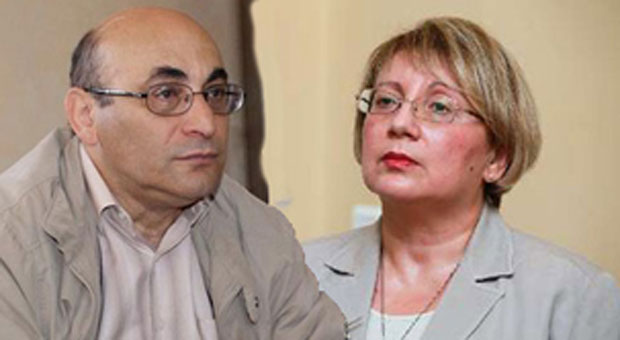
Arif and Leyla Yunus (Photo: HRHN)
Leyla Yunus — arrested 30 July 2014 — is the director of the Peace and Democracy Institute, which among other things works to establish rule of law in Azerbaijan. She has been charged with state treason (article 274 of the Criminal Code of the Republic of Azerbaijan), large-scale fraud (article 178.3.2), forgery (article 320), tax evasion (article 213), and illegal business (article 192). On 18 February, her pre-trial detention was extended for another five months. Her husband Arif Yunus was arrested 5 August 2014. Arif Yunus is facing charges of state treason and fraud. Both have had their initial three month pre-trial detentions extended.
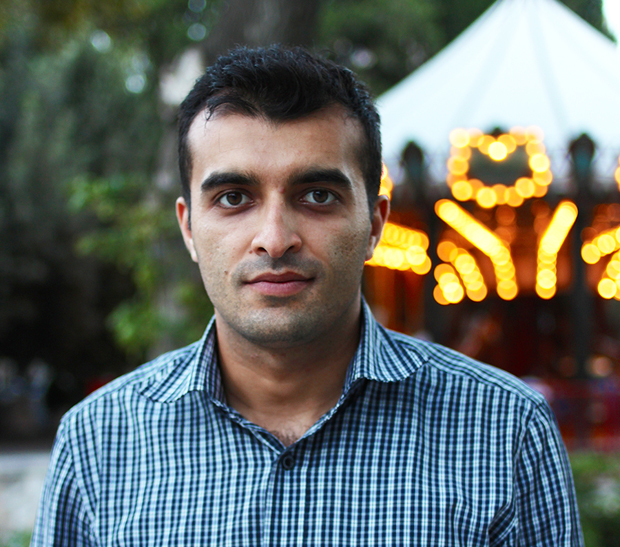
Human rights and democracy activist Rasul Jafarov (Photo: Melody Patry)
Rasul Jafarov — arrested 2 August 2014 — one of the initiators and coordinators of the campaign “Sing for Democracy” and “The Art of Democracy”, advocated for the rights of political prisoners, actively participated in the International Platform “Civil Solidarity.” He is accused of: tax evasion (Article 192), illegal business (Article 213) and malpractice (Article 308). The charges carry a possible sentence of 12 years.
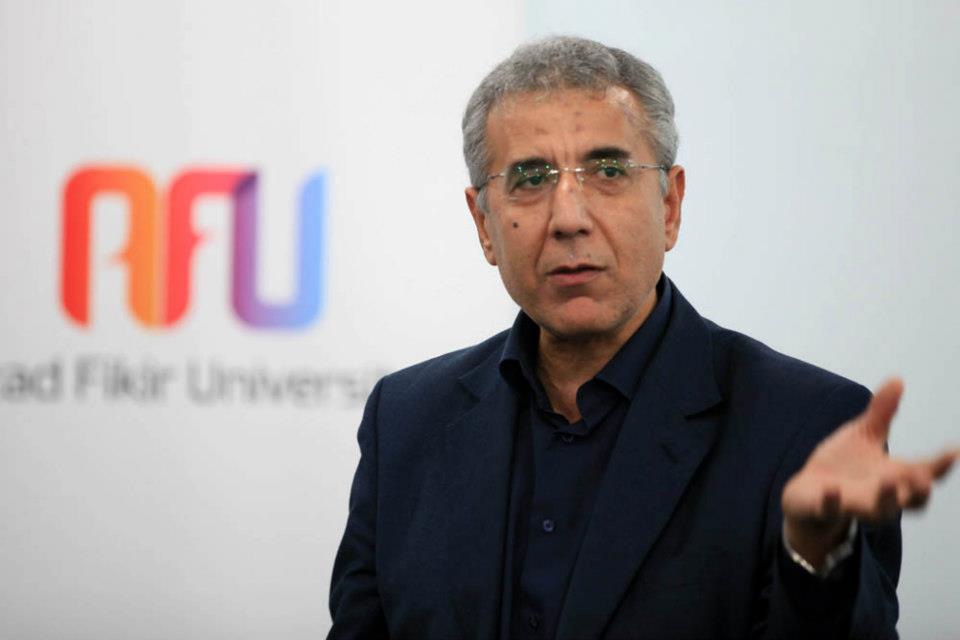
Lawyer Intigam Aliyev
Intigam Aliyev — arrested 8 August 2014 — is a human rights defender and a lawyer specialized in defending rights of citizens in the European Court of Human Rights. He is charged with Articles 213.1 (tax evasion), 308.2 (malpractice) и 192.2 (illegal business) of the Criminal Code. Index was heartened to hear that Aliyev was at least allowed to sit with his lawyers in court on Feb 3.
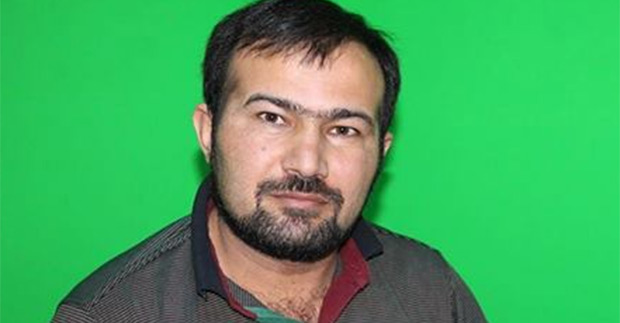
Journalist Seymur Hezi
Seymur Hezi — arrested 29 August 2014 — works for independent newspaper Azadliq and host of the news programme “Azerbaijan Hour”. He is a member of the opposition Popular Front Party. Index reported on January 29 that Hezi was sentenced to a five-year prison sentence on charges of “aggravated hooliganism” on 29 January.
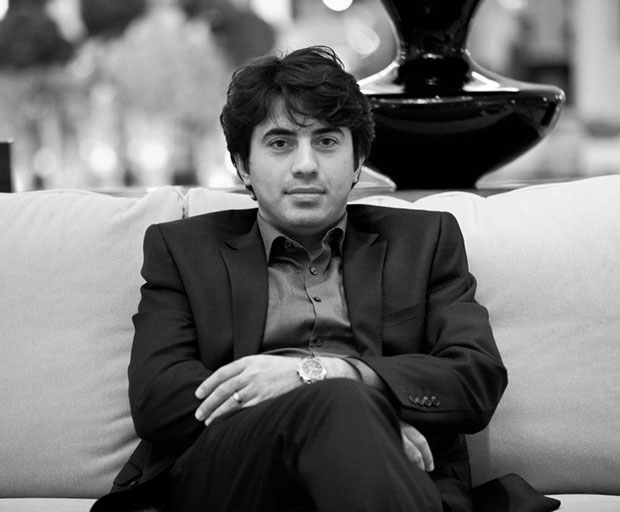
Emin Huseynov, journalist and human rights defender, director of the Azerbaijani Institute for Reporters’ Freedom and Safety (IRFS)
Emin Huseynov — went into hiding in August 2014 — is an internationally recognised human rights defender and leader of the Institute for Reporters’ Freedom and Safety (IRFS). IRFS is the leading media rights organisation in Azerbaijan and one of the main partner organisations of the Human Rights House Network in the country. Huseynov was charged with tax evasion, illegal business and abuse of authority after he went into hiding at the Swiss embassy. Florian Irminger, head of advocacy at the Human Rights House Foundation (HRHF), of which Index is a network member, called on Switzerland to continue to host Huseynov. “His location at the embassy is justified by the level of the repression in the country, the bogus charges brought against human rights defenders in Azerbaijan and the impossibility for them to defend themselves in court, due to the lack of independence of the judiciary and the harassment of their lawyers.”

Khadija Ismayilova
Khadija Ismayilova — arrested on 5 December — is an investigative journalist and radio host who is currently working for the Azerbaijani service of Radio Free Europe/Radio Liberty. She is a member of the Organized Crime and Corruption Reporting Project. She was arrested under charges of incitement to suicide, a charge widely criticised by human rights organizations. Ismayilova is currently being supported by two petition campaigns by Index on Censorship and Reporters Without Borders. On 13 Feb, lawyer Fariz Namazly told Contact.az that new charges have been filed. According to him, Ismayilova is charged under the Article: 179.3.2 (large-scale embezzlement), 192.2.2 (illegal business), 213.1 (tax evasion) and 308.2 (abuse of power.) The charges carry a possible sentence of 12 years.
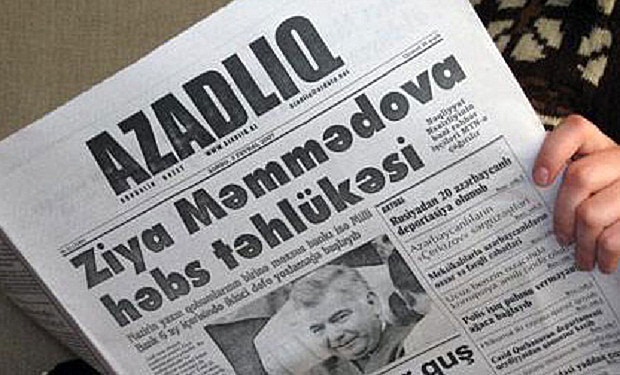
Award-winning newspaper Azadliq was forced to halt its print edition in July 2014 as its bank accounts were frozen. We reported on this in August 2014.
In September, the European Parliament adopted a resolution on the human rights situation in your country.
In November, Nils Muižnieks, the Council of Europe Commissioner for Human Rights, called his autumn 2014 mission to Azerbaijan one of the most difficult of his tenure. He wrote, “In late October I was in Azerbaijan, the oil-rich country in the South Caucasus, which just finished holding the rotating chairmanship of the 47-member Council of Europe. Most countries chairing the organisation, which prides itself as the continent’s guardian of human rights, democracy and the rule of law, use their time at the helm to tout their democratic credentials. Azerbaijan will go down in history as the country that carried out an unprecedented crackdown on human rights defenders during its chairmanship.”
You mention in your letter that individuals are not being arrested for their human rights work but it seems an astonishing coincidence that all these prominent human rights defenders should all be guilty of such an array of financial crimes. And that brings us full circle to the present. Since we received your letter, there have been several developments that we would like to brief you on:
On 29 January 2015, a provisional resolution before the CoE called attention to the cases of investigative journalist Khadija Ismayilova, human rights activist Emin Huseynov and the closure of Radio Free Europe/Radio Liberty. Further on in the resolution PACE was being asked to call on Azerbaijan to properly investigate the murders of journalists Elmar Huseynov (2005) and Rafiq Tagi (2011).
On 3 Feb, President Aliyev signed an amended media law that restricts press freedom by making it easier to shutter media outlets.
Just today, Reporters Without Borders released its World Press Freedom Index 2015, which places Azerbaijan at 162. That’s down 2 spots from last 2014.
We wish Azerbaijan’s commitment to a “free and diverse media” was more than just words and we will continue to report on these detentions – as we do globally – for as long as these words are not translated into action.
Best regards
Jodie Ginsberg
Chief Executive
Index on Censorship

Azerbaijani journalist Seymur Hezi, who works for Index on Censorship Freedom of Expression Award-winning newspaper Azadliq, has been sentenced to five years imprisonment for “aggravated hooliganism”, according to Azadlıq Radiosu.
“Index condemns the sentencing of Azerbaijani journalist Seymur Hezi, who was arrested last year on trumped up charges of disorderly conduct. The ‘crime’ for which he is actually being punished is journalism and his attempts to tell the truth about a brutal authoritarian regime that systematically stifles dissent,” Index CEO Jodie Ginsberg said.
Hezi’s sentencing is another sign of the continuing clampdown by Azerbaijan’s authoritarian government on civil society. Earlier this week, investigative journalist Khadija Ismayilova‘s pre-trial detention period was extended by a Baku court; other prominent human rights defenders who have been arrested in recent months include: Leyla Yunus, Arif Yunus, Rasul Jafarov, Anar Mammadli and Intigam Aliyev.
Hezi was arrested on August 29 2014 after an altercation in which the journalist said he was protecting himself from a physical assault and harassment, according to his lawyers.
Azadlıq Radiosu reported that Hezi’s lawyers and family are certain the arrest and the sentence are politically motivated and that Hezi is innocent.
His father, Meshqul Heziyev told Azadlıq Radiosu, “the hearing was biased and turned down all of the motions. At the end it simply carried out a politically motivated order”.
“Seymur Hezi’s arrest is a serious blow against our newspaper. He is one of the brightest Azerbaijani analysts and journalists, and a true intellectual,” Rahim Haciyev, acting editor of Azadliq newspaper, told Index at the time of Hezi’s arrest.
Haciyev said he is sure Hezi’s arrest is the result of a planned provocation and the journalist is prosecuted for publishing critical articles on the authorities in the newspaper, as well as in his online TV program “Azerbaijani Hour”, which he scripts and hosts.
In March 2011, Hezi was abducted and tortured by unidentified men. He was warned to keep quiet.
Seymur Hezi is also host of news programme “Azerbaijan Hour” and is a member of the opposition Popular Front Party.
This article was published on 29 January 2015 at indexoncensorship.org